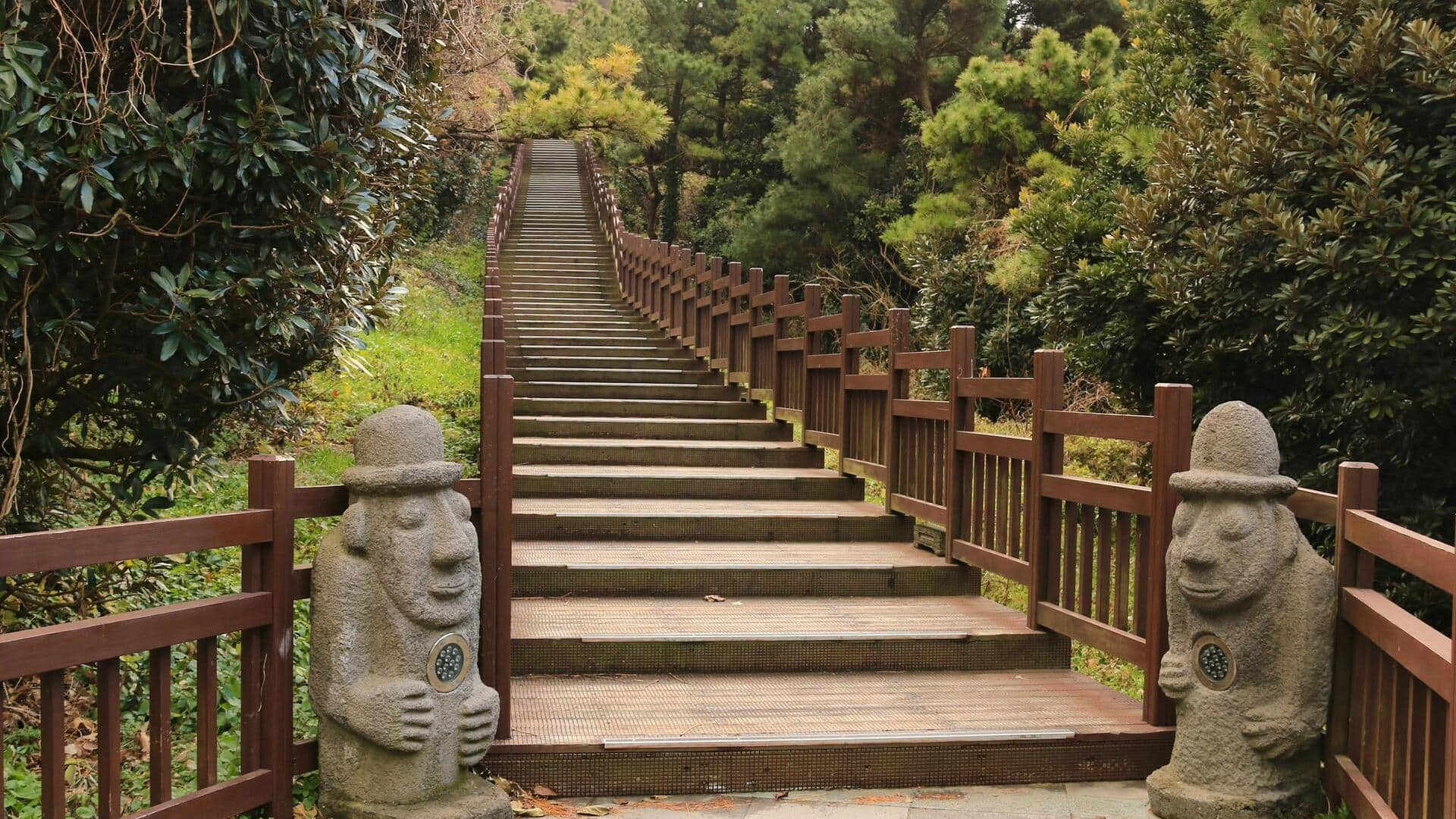
You must visit these sculpture parks in South Korea
What's the story
South Korea is home to some of the most breathtaking sculpture parks, which are a perfect blend of nature and art. These parks provide visitors with a chance to explore outdoor galleries, showcasing the work of local and international artists. From traditional sculptures to contemporary installations, each park has its own unique offerings. Here are some of South Korea's most famous sculpture parks, and what makes them special.
Jeju Island
The enchanting art park in Jeju
Jeju Island's Art Park is famous for its stunning coastal views and diverse collection of sculptures. Spread across a vast area, the park features works from both Korean and international artists. The natural landscape adds to the beauty of the sculptures, making it an ideal place for art lovers and nature enthusiasts alike. The park also hosts various cultural events throughout the year.
Olympic Park
Seoul's Olympic Park: A blend of sports and art
Located in the heart of Seoul, Olympic Park was built for the 1988 Summer Olympics. It has since evolved into a cultural hub, with its expansive grounds dotted with sculptures from both Korean and foreign artists. The park's historical significance, combined with its artistic offerings, makes it a must-visit for anyone interested in sports history or contemporary art.
Busan Park
Busan's sculpture haven: Busan Sculpture Park
Busan Sculpture Park is situated in the beautiful hills of Busan. It features an impressive collection of modern sculptures by renowned artists from across the world. The park's serene environment allows visitors to enjoy art while being surrounded by nature. Regular exhibitions and workshops make this place an active center for creativity and cultural exchange.
Gyeongju Park
Gyeongju's ancient city meets modern art
Gyeongju Park is unique in that it combines historical sites with modern artistic expressions. The city is famous for its ancient tombs and palaces, which are complemented by contemporary sculptures scattered across the area. This juxtaposition gives visitors an opportunity to experience both historical and modern-day Korean culture in one place.